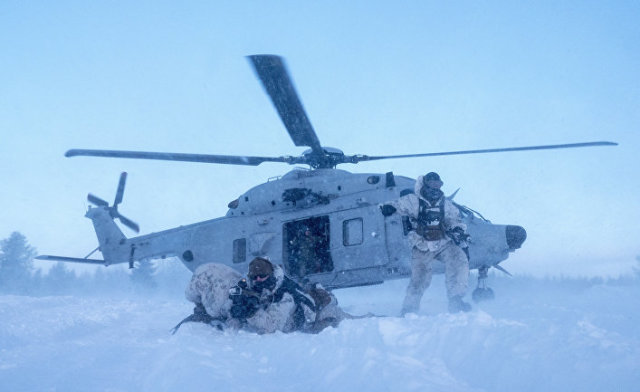The Swedish government prefers the position of a major power: deterrence, deterrence and at the same time provocations against Russia. This is incredibly reckless, says the author of the article. Ties with NATO only increase the risk that the country will have to fight, and in addition deprive Sweden of the opportunity to make independent decisions.
The security of a small state should be based on two pillars: strong defense, which has a deterrent effect if there is a threat of aggression, and smart diplomacy, which appeases and clarifies the country's position. The Kingdom of Sweden today does not have any of these fundamental tools.
The defense has been disarmed, and it will take a long time to build it up again. And our foreign policy is governed by feelings, good intentions, not reason and realism. She has repeatedly unnecessarily annoyed our big neighbor to the east.
This political equation doesn't add up. The country's leadership is making the situation even more unstable by staging provocations against Russia and making us an increasingly likely target of attack. It deepens military cooperation with the main enemy of Russia, whose intentions are not limited to concern for the independence of Sweden. It allows foreign countries to conduct exercises on our territory, preparing for future operations that may well run counter to the interests of our country.
In other words, our government does not want to prevent aggression, preferring a model of action suitable for large states-a policy of deterrence and deterrence. And it suggests that Sweden does not exclude assistance to foreign countries in their far-reaching plans to attack another country and can even provide them with their own territory for this.
It's just incredibly reckless. If we are attacked (which has not happened since 1808, and which is still extremely unlikely, unless we allow ourselves to be drawn into constant conflicts of major powers with an uncertain outcome), we cannot expect to win a confrontation with a much superior enemy. In such a situation, our advantage is that no one knows our country, its bays and fairways, its secret places better than we do. Neither the aggressor country, nor those from whom we are now officially waiting for help in case of something is NATO.
It is at home, within our own borders and with the help of a strong territorial defense, that we could stop, slow down and knock out a potential enemy. And we have to convince him that we can do it. And this requires a well-trained population, as well as, if necessary, large-scale mobilization, both military and psychological. The experience of the second half of the twentieth century shows that such strategies can be successful, even if they require great sacrifices. Bomb wars often led to military or political fiascos for their initiators and sometimes to disasters for those who became their targets.
Ties with NATO increase the risk that our country will become a victim of operations aimed at our immediate environment, our defense capability and well-being. Kallinge Airport and the naval base in Karlskrona are logical targets for attacks by a hostile state that feels threatened and wants to strike preemptively. However, at the same time, Russia was not noticed in the desire to conquer Sweden and turn it into a puppet state (if we do not take into account the opinion of certain circles). Sweden's official desire to help other countries in the event of an attack seriously threatens our own security and sovereignty, especially some vulnerable border posts. We must not forget about them.
NATO membership will only make the situation worse. Instead, we should have assured our immediate entourage that Sweden has no intention of allowing a foreign State or alliance to host bases or otherwise assist in attacks on a third party, and that it will do its best to stay out of any military action until it is attacked itself. To do this, we need to adjust our security policy on several points. An indisputable factor contributing to peace is a position outside of alliances and neutrality, as well as a security policy based on its own defense capability and designed for the long term.
You can never rely on the big Powers. This has nothing to do with ideology, nor with the change of governments. The world around us is not static, it is in constant motion. And we should not miss the opportunity to make our own decisions about how to behave in this difficult situation.
Anders Björnsson (Björnsson Anders)

